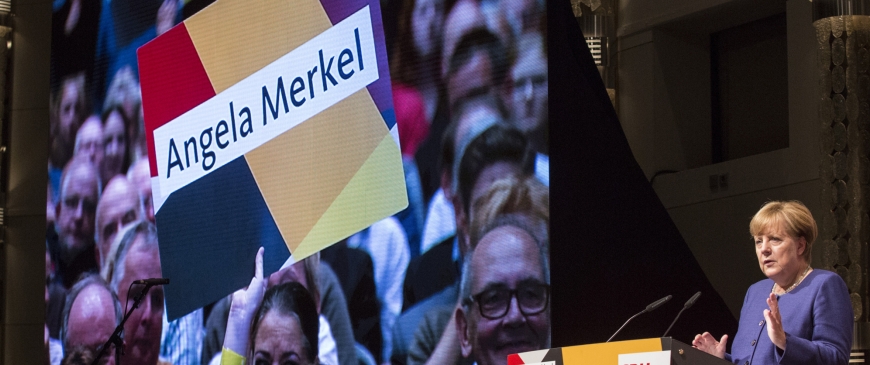
What does the German election mean for Brexit?
The next round of Brexit talks, planned for October, could be delayed until December, ostensibly due to a lack of progress on trade issues. However, drawn out coalition talks in Germany may also play a role.
As the parties slated for a possible so-called "Jamaica coalition" in Germany grapple with themselves and their political counterparts to find potential common ground, UK Prime Minister Theresa May will be following developments closely, as she ponders what impact a government made up of the CDU/CSU, the FDP and the Greens could have on Brexit negotiations.
So where do the parties stand on Brexit?
CDU/CSU
The general take is that not much will change for Angela Merkel's Christian Democrats, with the chancellor remaining at the helm.
- The Christian Democrats' prevalent position is that for the UK to continue enjoying EU membership benefits even once it exits, it must accept the four freedoms of movement, namely goods, people, services and capital.
- The CDU has kept a strict line on Brexit. It has prioritized the integrity of the single market, the rights of EU citizens in the UK, and the continued unity of the remaining EU27.
Here's what Sophia Besch, research fellow at the Center for European Reform and an expert on EU and German affairs, has to say about the CDU's position:
"The CDU is open to a strong partnership with Britain after Brexit negotiations are done. And the key term is after negotiations are done because they're also committed to the EU line which is that there shall be no cherry picking and the single market must be preserved. And the negotiations have to demonstrate that a country can't be better off outside the European Union than inside."
The Greens
On paper the Greens are the most pro-European of the potential partners and are highly critical of the UK's decision to leave the EU. They could throw a spanner in the works for the UK, particularly regarding the negotiation of a post-Brexit trade relationship.
- The Greens strongly oppose trade agreements including TTIP and CETA, as well as the Trade in Services Agreement (TiSA), due to concerns over social and environmental protections, and democratic accountability.
- In their party program the Greens suggest that Scotland and Northern Ireland should be given the opportunity for a way back in to the EU if they decide to split from the UK.
Sophia Besch: "I think the Greens are the most likely to see Brexit in the same context as they see for example the election of Donald Trump and the rise of populism. So maybe they're the most strident in their evaluations of Brexit in that sense and the most critical [party] of the UK's decision. They're equally the most committed to maintaining EU cohesion and unity and to setting an example that you cannot be better off outside the EU."
FDP
The pro-business Free Democrats favor a pragmatic approach to Brexit but have cautioned against increased British expectations.
- The FDP is expected to influence Merkel's Brexit policy in favor of a mutually beneficial free trade deal, and maintains that the UK should not be punished for leaving the European Union.
- Having the FDP in government would also mean a stronger voice in the Brexit negotiations for German business, the sector that has most to lose from a punitive Brexit deal.
Sophia Besch: "The problem with that is that you need to look at what the real business interests are in Germany. Yes, German industries have an interest in continued trade with Great Britain and yes, Germany will lose out if the fair trade relationship gets worse. [But] there's a greater interest in a functioning single market. So if you measure these two against each other, even a business-friendly party has an interest in protecting the single market from the fallout of the Brexit negotiations."
How big is Brexit in Germany?
Notwithstanding the importance of Brexit, Besch is quick to point out that coalition negotiations are unlikely to focus heavily on the UK's exit. "It's just not a big topic in Germany."
She also points out that there's a distinct tendency to overestimate the power that Germany has in the context of negotiations.
"The idea that the UK is negotiating with Berlin and not with Brussels is misguided, because Berlin, at least so far, is willing to submit its interests to Brussels negotiators, because Germany knows that a European Union that only pursues German interests will lead to a backlash against Germany and [German politicians] can't allow that to happen."
Sophia Besch is a research fellow at the Centre for European Reform.
